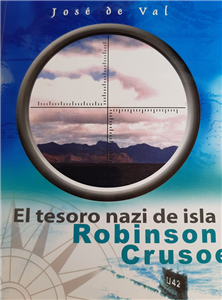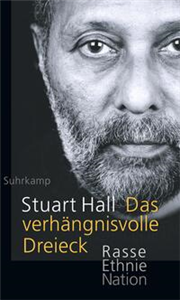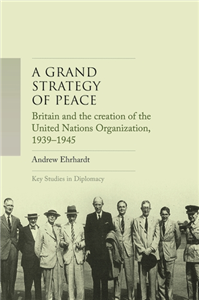Your Search Results
-
Jacoby & Stuart
Jacoby & Stuart is a publishing house of richly illustrated and well-written children’s books, picture books, fiction and non-fiction. For adults we publish graphic novels, lovingly designed gift books, richly illustrated and informative non-fiction as well as inventive and exquisite cookbooks.
View Rights Portal
-
Promoted ContentLiterature & Literary StudiesAugust 2017
Literature of the Stuart successions
by Andrew McRae, John West
-
Promoted ContentLiterature & Literary StudiesMarch 2021
The daring muse of the early Stuart funeral elegy
by James Doelman
-
 Trusted Partner
Trusted Partner
-
 Trusted Partner
Trusted Partner
-
 Trusted Partner
Trusted Partner
-
 Trusted Partner
Trusted Partner
-
 Trusted Partner
Trusted Partner
-
 Trusted Partner
Trusted Partner
-
 Trusted Partner
May 2009
Trusted Partner
May 2009Stuart Pigotts Weinreisen
Rheingau
by Lüer, Manfred; Pigott, Stuart / Foto(s) von Durst, Andreas
-
 Trusted Partner
2004
Trusted Partner
2004The Nazi Treasure of Robinson Crusoe Island
by José De Val
In exotic settings from the Caribbean to the islands of the South Sea, the paradisiacal environment of Robinson Crusoe Island, off the coast of Chile, weaves together this thrilling narrative, featuring a series of characters from all walks of life, whose fates intertwine in feelings of passion and uncontrollable ambitions that lead to murder and an unexpected conclusion. Captain Von Unger, through the periscope of the submarine U-42, takes the reader from the Battle of Coronel to the tragic end of Von Spee's squadron in the Battle of the Falklands. A change of setting brings us to present day, in the turquoise waters of the Bahamas, where a trio of adventurous treasure hunters and a gangster with his henchmen embark on a dizzying chase that culminates in a brutal ending in Bahía Cumberland of Robinson Crusoe island. A thrilling story that will captivate you from beginning to end.
-
 Trusted Partner
Trusted Partner
-
 Trusted Partner
May 2009
Trusted Partner
May 2009Stuart Pigotts Weinreisen
Baden und Elsass
by Kurt, Chandra; Lüer, Manfred; Pigott, Stuart / Foto(s) von Durst, Andreas
-
 Trusted Partner
May 2009
Trusted Partner
May 2009Stuart Pigotts Weinreisen
Rheinhessen und Nahe
by Heinzelmann, Ursula; Lüer, Manfred; Pigott, Stuart / Foto(s) von Durst, Andreas
-
 Trusted Partner
September 2009
Trusted Partner
September 2009Stuart Pigotts Weinreisen
Schweiz
by Kurt, Chandra; Heinzelmann, Ursula; Pigott, Stuart / Foto(s) von Durst, Andreas
-
 Trusted Partner
Humanities & Social SciencesApril 2024
Trusted Partner
Humanities & Social SciencesApril 2024Reformed identity and conformity in England, 1559–1714
by Jake Griesel, Esther Counsell
This volume is the first collection of essays to focus specifically on how Reformed theology and ecclesiology related to one of the most consequential issues between the Elizabethan Settlement (1559) and the Hanoverian Succession (1714), namely conformity to the Church of England. This volume enriches scholarly understandings of how Reformed identity was understood in the Tudor and Stuart periods, and how it influenced both clerical and lay attitudes towards the English Church's government, liturgy and doctrine. In a reflection of how established religion pervaded all aspects of civic life in the early modern world and was sharply contested within both ecclesiastical and political spheres, this volume includes chapters that focus variously on the ecclesio-political, liturgical, and doctrinal aspects of conformity.
-
 Trusted Partner
Humanities & Social SciencesOctober 2023
Trusted Partner
Humanities & Social SciencesOctober 2023The illusion of the Burgundian state
by Élodie Lecuppre-Desjardin, Christopher Fletcher
On 25 January 1474, Charles the Bold, duke of Burgundy, appeared before his subjects in Dijon. Robed in silk, gold and precious jewels and wearing a headpiece that gave the illusion of a crown, he made a speech in which he cryptically expressed his desire to become a king. Three years later, Charles was killed at the battle of Nancy, an event that plunged the Great Principality of Burgundy into chaos. This book, innovative and essential, not only explores Burgundian history and historiography but offers a complete synthesis about the nature of politics in this region, considered both from the north and the south. Focusing on political ideologies, a number of important issues are raised relating to the medieval state, the signification of the nation under the 'Ancien Regime', the role of warfare in the creation of political power and the impact of political loyalties in the exercise of government. In doing so, the book challenges a number of existing ideas about the Burgundian state.
-
 Trusted Partner
Humanities & Social SciencesMarch 2019
Trusted Partner
Humanities & Social SciencesMarch 2019Safe as Houses
Grenfell, disaster housing, and the outsourced state
by Stuart Hodkinson
As the tragedy of the Grenfell tower fire has slowly revealed a shadowy background of outsourcing, private finance initiatives and a council turning a blind eye to health and safety concerns, many questions need answers. Stuart Hodkinson has those answers. He has worked for the last decade with residents groups in council regeneration projects across London. As residents have been shifted out of 60s and 70s social housing to make way for higher rent paying newcomers, they have been promised a higher quality of housing. Councils have passed the responsibility for this housing to private consortia who amazingly have been allowed to self-regulate on quality and safety. Residents have been ignored for years on this and only now are we hearing the truth. Stuart will weave together his research on PFIs, regulation and resident action to tell the whole story of how Grenfell happened and how this could easily have happened in multiple locations across the country.
-
 Trusted Partner
October 2018
Trusted Partner
October 2018Das verhängnisvolle Dreieck
Rasse, Ethnie, Nation
by Stuart Hall, Frank Lachmann
Flaschenpost an die Zukunft! In diesem postum veröffentlichten Buch über das verhängnisvolle Dreieck von Rasse, Ethnie und Nation zeichnet der große Soziologe und Begründer der Cultural Studies, Stuart Hall, nach, wie alte Hierarchien in unseren Gesellschaften aufgebrochen wurden und unterdrückte Minderheiten neue Repräsentationsformen von kultureller Identität durchzusetzen begannen – und wie sich dagegen immer wieder Widerstand formierte. Von der Renaissance bis zur Aufklärung und darüber hinaus diente der Begriff »Rasse« dazu, soziale Unterschiede aufgrund von Hautfarbe als natürlich und unwandelbar darzustellen. Auch heute findet die rassistische Fundierung von ethnischer und politischer Zugehörigkeit im Zeichen der Identitätspolitik wieder verstärkt Zuspruch. Die Neudefinitionen, die im 20. Jahrhundert von der schwarzen Bürgerrechtsbewegung und von Migrantinnen und Migranten in westlichen Gesellschaften durchgesetzt wurden, zeigen für Hall jedoch, wie Identitäten und Vorurteile im Medium der Sprache transformiert werden können. Sie geben Grund zur Hoffnung, dass in der migrantischen Diaspora immer wieder neue Anstöße entstehen, um den Bedrohungen des Fundamentalismus und des Nationalismus zu begegnen. Ein Vermächtnis von brennender Aktualität.
-
 Trusted Partner
Humanities & Social SciencesJuly 2025
Trusted Partner
Humanities & Social SciencesJuly 2025A grand strategy of peace
Britain and the creation of the United Nations Organization, 1939-1945
by Andrew Ehrhardt
A grand strategy of peace is the first detailed account of Britain's role in the creation of the United Nations Organization during the Second World War. As a work of traditional diplomatic history that brings in elements of intellectual history, the book describes how British officials, diplomats, politicians, and writers - previously seen to be secondary actors to the United States in this period - thought about, planned for, and helped to establish a future international order. While in the present day, many scholars and analysts have returned to the origins of the post- 1945 international system, this book offers an exhaustive account of how the statesmen and more importantly, the officials working below the statesmen, actually conceived of and worked to establish a post-war world order.
-
 Trusted Partner
Teaching, Language & ReferenceFebruary 2020
Trusted Partner
Teaching, Language & ReferenceFebruary 2020A writer's guide to Ancient Rome
by Carey Fleiner, Jerome de Groot




























